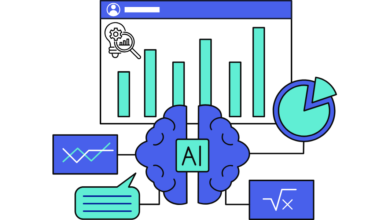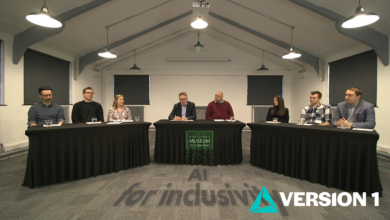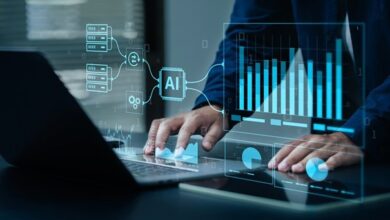
By 2026, it’s expected that AI will be able to outpace the majority of college students. AI is the most rapid technology advancement I’ve seen in my entire life, and I’ve been obsessed with tech since the age of 10. It’s a known fact that whenever major tech innovation happens, there is always fear around the change. In AI’s case, I think we’re right to be concerned, particularly as legislation is lagging behind and deepfakes are thriving. At an individual level, while we can’t control what our governments do, or control how smart AI gets, we can upskill ourselves and prepare for the future of work. So, using the knowledge I have about LLMs and GenAI, I want to share the top skills I predict will be needed in the near future, as well as general advice on where the world of work is headed.
First, I’ll start by saying that AI is going to replace some jobs, that is the reality of the times we’re living in. It’s difficult to predict just how many, but it will be a significant number. And, the really surprising thing is that AI isn’t simply coming for admin jobs such as data entry and some service roles, but knowledge-based jobs, too. Jobs like translation services and proofreading are at risk, especially since LLMs are already doing a pretty good job in those departments. Conversely, AI will also create a significant number of jobs, and those eager to learn and pivot will do well.
Onto the skills…
Empathy
Although AI can talk and write like a human and detect human sentiment, it can’t actually feel human emotions. If you bring emotionally intelligence and empathy to your role, then you’ve already an automatic edge over AI. For example, AI can analyse text or voice to determine if someone sounds happy, sad, or angry, but it can’t genuinely understand the context behind those emotions or provide the nuanced support that a human can. Consider a situation where an employee is dealing with the loss of a loved one. An empathetic manager can offer personalised support, such as giving time off or just being a listening ear, something an AI cannot do authentically. Most humans would rather deal with people when it comes to sensitive matters rather than machines. It’s also extremely unlikely that AI will replace care-based roles that are primarily based around empathy such as nurses and therapists.
Problem-solving
When you talk to business leaders, they still massively value problem-solving skills. The ability to unpack complex issues and find real solutions is very much in-demand. The AI we currently have and likely for a few years isn’t great at problem-solving. It’s good at language-based tasks, but when you ask it to do something specific that requires deterministic precision or has many moving parts, it really struggles and needs loads of human coaxing. For instance, solving a complex logistical issue in supply chain management requires understanding various unpredictable factors, something that current AI struggles with.
Creativity
Creative skills such as novel writing, painting, or playing an instrument and coming up with original ideas are very unlikely to be overtaken by AI. Yes, it’s true that GPT can write decent poetry and DALLE can come up with imaginative images, but without the human experience and craftsmanship behind them, they are ten a penny. We attribute value to rock concerts and choosing art for the home because it’s come from a human experience which we have connected with through our own personal experiences. There is a real sense of discomfort around a computer masquerading as a human artist, and I just don’t see a day where we’re all turning up to AI Glastonbury. Plus, AI lacks the intrinsic motivation and cultural context that often drive human creativity such as warfare and politics, since it’s not an active participant in the world. These kind of differences are exactly what makes human artistic expression unique and irreplaceable.
Leadership
However sophisticated AI gets, it can’t think for itself or lead a team. You need someone at the helm of all this technology who not only grasps it, but knows how to govern it, shape it and implement it. Roles such as Chief AI Officers are growing in demand as more and more businesses realise this is a key hire to drive their vision for AI innovation forward.
Personality and positive attitude
Lastly, employers still massively value good attitude. AI doesn’t come with attitude, it just gets stuff done. But a positive attitude that goes above and beyond is hugely important. The world of work would be awfully boring and lonely without colleagues who bring a good energy and vibrant personality to the table. For instance, a team member who motivates others during tough projects or someone who brings a sense of humour to the workplace. These human traits nurture a collaborative, enjoyable work environment – something AI can’t replace.
AI and human augmentation
With these five skills and AI at your side; whether it’s copilots, analyst AI buddies, whatever, you go from being a human to a superhuman. If you don’t learn how to use the tools, you’re just a human competing with superhumans. There will be many jobs that AI augments and in these cases, AI will hopefully handle the boring bits, leaving the human to do the meaningful parts. Also, a recent study found that job applicants who possessed AI skills were 54% more likely to receive higher pay and win the job. This statistic alone should be a major motivator to continually adapt and learn new AI-related skills to stay competitive in the job market.
Responsibility of governments and employers
There’s a responsibility that rests on the shoulders of anyone in AI, governments, and employers to help people through this change. Governments need to decide where the economic value from AI should go. Should it go to those who bring capital to AI companies or to those whose data was used to create AI? While I firmly believe it should rest with the people, only governments can tackle that challenge. The role of businesses here is to ensure they upskill their workforce and provide opportunities for growth and learning as things progress.
While AI is transforming the workplace, it’s the uniquely human skills of empathy, problem-solving, creativity, personality, and the willingness to learn that will set ambitious individuals up to flourish. By embracing these skills, we can navigate the future of work with an optimistic outlook.



